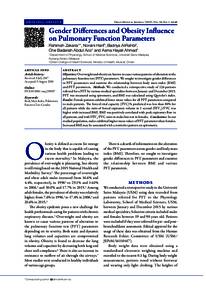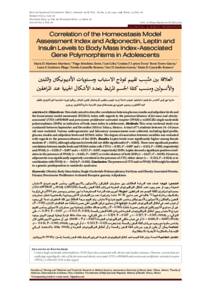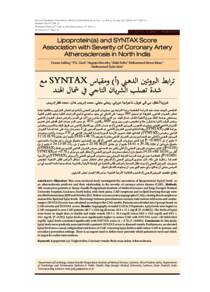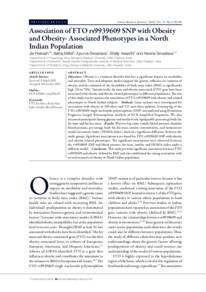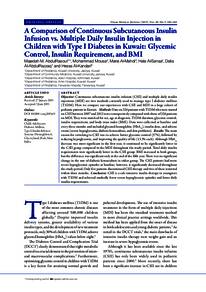وثيقة
Gender differences and obesity influence on pulmonary function parameters.
المعرف
DOI 10.5001/omj.2019.07
المساهمون
الناشر
Oman Medical Speciality Board.
ميلادي
2019-01
اللغة
الأنجليزية
الملخص الإنجليزي
Objectives: Overweight and obesity are known to cause various patterns of alteration to the pulmonary function test (PFT) parameters. We sought to investigate gender differences in PFT parameters and examine the relationship between body mass index (BMI) and PFT parameters. Methods: We conducted a retrospective study of 126 patients referred for a PFT by various medical specialties between January and December 2015. PFT was measured using spirometry, and BMI was calculated using Quetelet's index. Results: Female patients exhibited lower mean values for all PFT parameters compared to male patients. The forced vital capacity (FVC)% predicted was less than 80% for all patients while the ratio of forced expiratory volume in 1 second (FEV1 )/FVC was higher with increased BMI. BMI was positively correlated with peak expiratory flow in all patients, and with FEV1 /FVC ratio in males but not in females. Conclusions: In our studied population, males exhibited higher mean values of PFT parameters than females. Increased BMI may be associated with a restrictive pattern on spirometry.
المجموعة
URL المصدر
zcustom_txt_2
Zakaria, Rahimah, Harif, Noraini, Al-Rahbiyah, Badriya, Abdul Aziz, Che Badariah, & Ahmad, Asma Hayati (2019). Gender differences and obesity influence on pulmonary function parameters. Oman Medical Journal, 34 (1), 44-48.
قالب العنصر
مقالات الدوريات

